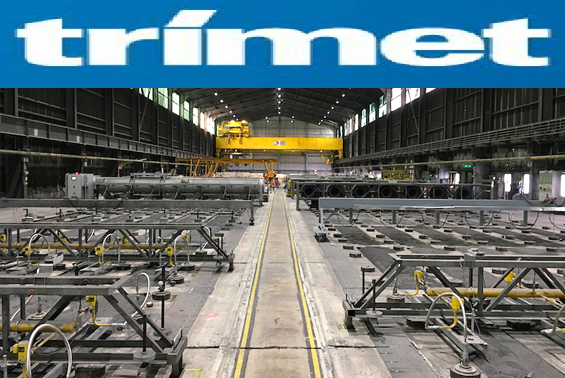

Trimet Aluminium SE’s aluminium smelter in Hamburg settles a new baking furnace for the production of carbon anodes, aiming to ensure greater energy efficiency.

The new brick-lined ring chamber furnace with 48 chambers superseded an eight-year-old furnace, ensuring greater energy efficiency. An ultra-modern firing system also contributes to this, with a gas burner that makes more efficient use of energy while concurrently producing less emission. Furthermore, the furnace integrates optimized materials: the bricks used for the furnace walls are easier to heat so that considerably less energy is required. Trimet has invested around twelve million euros in the new system.
Dr Andreas Lützerath, member of the Executive Board of Trimet Aluminium SE said: “With the new baking furnace, we will produce even more energy-efficiently in the future. This means that the investment in modern technology is paying off twice for Trimet. We are optimizing the quality and performance of our products while also ensuring that our processes are more sustainable.”
Carbon anodes are required for the production of primary aluminium. In fused-salt electrolysis, liquid aluminium is produced from the chemical reaction of the source material aluminium oxide with carbon utilizing electric current. The anodes assume the functions of conductor and reactant in this process.
The Trimet plant in Hamburg produces anodes for its metal production and the Trimet aluminium smelter in Essen. About 120,000 tons of carbon anodes are fired annually in the anode plant. Petroleum coke mixed with coal tar pitch is made conductive through the thermal firing process in the furnace. In a process lasting 18 days, the 1.6 meters long and nearly 1.2-ton anode bodies are gradually heated up to 1,100° Celsius in the combustion chambers before being cooled down again.
Dr Jörg Prepeneit, Trimet plant manager in Hamburg said: “The new construction of an anode baking furnace during the ongoing operation was a technical and logistical challenge that the team mastered with flying colours in record time. We can all be proud of the smooth outcome of the project in just ten weeks. Now we can fully concentrate on production again.”
The most important factor was meticulous planning, as the engineers and more than 100 bricklayers had to coordinate their work with the ongoing firing process. 9,000 tons totalling more than 1.5 million bricks were used for the new anode baking furnace, including 34 different brick types. Many of these bricks were individually manufactured and fitted into their specific place.
The Trimet plant in Hamburg employees around 380 workers and they produce about 130,000 tonnes of primary aluminium and 120,000 tonnes of carbon anodes annually.



Responses






